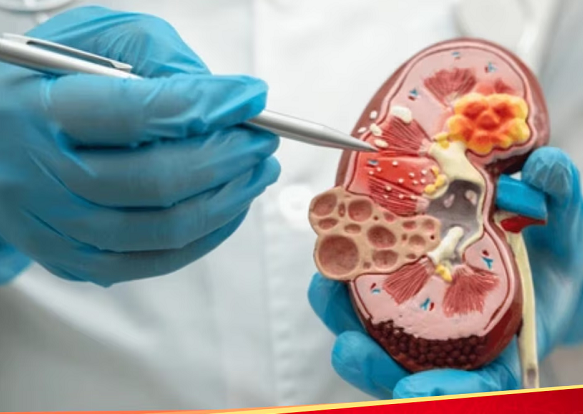Kidney is counted among the most important organs of the body. It works to filter about 180 liters of blood every day. Apart from this, it helps in the production of red blood cells, releasing hormones that regulate blood pressure and removing waste from the body in the form of urine. In such a situation, even the slightest malfunction can result in minor to serious signals.

In such a situation, Dr. Manoharan B, Senior Consultant-Nephrology, Manipal Hospital Vartur Road and Whitefield, Bengaluru, explains that loss of appetite, also called anorexia, can be an early sign of kidney damage or disease. You can understand from the experts in this article what is the relationship between kidney and hunger.
Link between kidney disease and hunger
About one-third of chronic dialysis patients complain of loss of appetite. This happens due to reduction in glomerular filtration in kidney disease.
What is the reason for loss of appetite?
Dr. Manohar explains that in non-dialyzed chronic kidney disease patients and those undergoing maintenance dialysis, anorexia is primarily associated with the buildup of unidentified anorexigenic compounds and inflammatory cytokines. Additionally, there is a hyperserotonergic state, which is responsible for reducing appetite. C.K. In patients with D., increased PTH levels are also associated with poor appetite.
Do not ignore loss of appetite
Persistent loss of appetite can lead to malnutrition or deficiency of essential vitamins and electrolytes, which can result in life-threatening complications. Therefore, if you experience a loss of appetite that persists beyond the period of an acute illness or lasts for more than a few weeks, be sure to get checked by a doctor.
Treatment of anorexia in kidney disease
Treatment of anorexia usually includes counseling, starting dialysis treatment for patients with uremic chronic kidney disease, optimizing dialysis dosage, and possibly administering appetite-stimulating medication. Dr. Manoharan explains that IV amino acid supplements such as pure crystalline amino acid solutions are very beneficial for HD patients.
Photo Credits: Google










